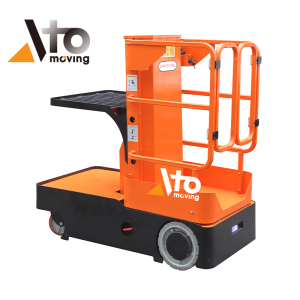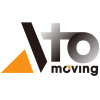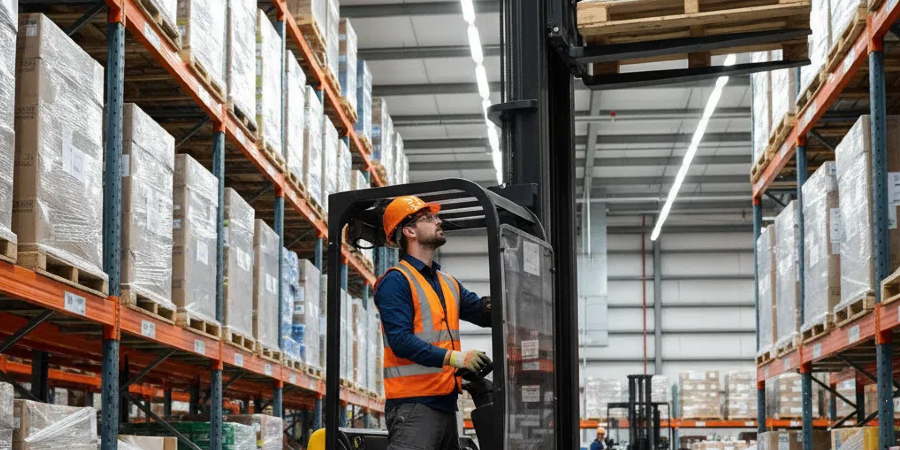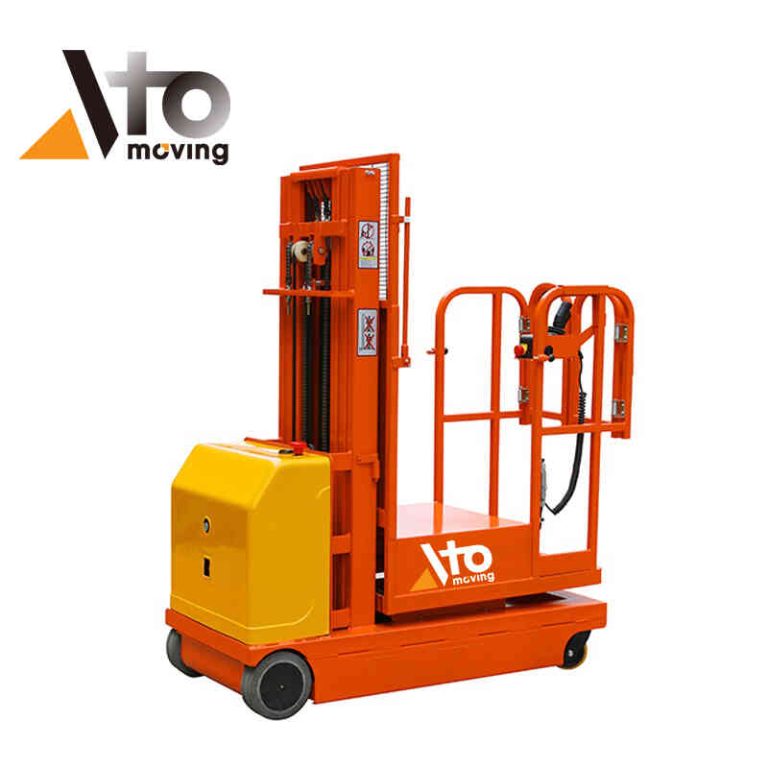When purchasing material handling equipment such as forklift stock pickers, having operators meet certification standards is not just a formality, it is a legal requirement and is critical to your company’s operations. Companies lose millions of dollars every year due to workplace safety violations. When purchasing teams understand certification requirements, they can reduce risk, reduce liability, and increase productivity. This article will detail what certifications operators need, discuss changes in industry regulations, and explain how equipment specifications and training standards match.
1. Importance of operator certification in material handling
Operator certification is not optional, but an important step to ensure workplace safety, improve operational efficiency, and manage costs over the long term. In industries that rely on forklift stock pickers, if operators are not certified, accidents can occur, equipment can be damaged, and regulatory authorities may penalize you. For example, the Occupational Safety and Health Administration (OSHA) found that nearly 35% of workplace forklift accidents are caused by inadequate training. Each violation costs companies an average of $135,000.
Certified operators are trained and familiar with the details of the equipment, such as load limits, stability parameters, and what to do in an emergency. With this expertise, there will be fewer workplace accidents, less equipment downtime, and smoother workflow. Today’s forklift stock pickers generally have advanced features, such as height-sensing technology and tilt prevention systems, which require expertise to operate. If the operator is not properly trained, they will not be able to use these features well, and the original advantages of the equipment in terms of safety and efficiency will be lost.
The procurement team is critical in this regard. Purchasing equipment that meets industry standards and certifications will make it easier for new employees to join and for the company to comply with regulations. As customers are increasingly concerned about safety standards, companies that value operator certification can also maintain their reputation.
2. Legal requirements for forklift stock picker operations
If procurement teams want to balance compliance with operational efficiency, they need to understand the legal requirements for forklift stock picker operations. In the United States, employers must ensure that operators are trained and certified for specific equipment types, including forklift stock pickers, according to the Occupational Safety and Health Administration (OSHA) 29 CFR 1910.178. Failure to comply can result in fines of more than $15,000 per violation, and repeated violations can cost more and affect operations.
Globally, regulations vary from region to region, but they all put safety first. For example, North American CSA standards place special emphasis on testing load capacity and regularly inspecting equipment, while Europe’s Machinery Directive 2006/42/EC requires strict compliance with design and safety specifications. These regional differences mean that procurement personnel must confirm that equipment specifications (such as lifting height, load limits, and safety features) comply with local laws, otherwise they will cause serious losses.
Insurance issues also show that compliance is important. Insurance companies generally require operators to provide certification and equipment must meet safety standards before they will provide insurance. Equipment-related regulations, such as the requirement for aerial work platforms to have fall protection systems, also influence purchasing decisions. Only by proactively selecting equipment that is adaptable and can keep up with future developments can the purchasing team remain in compliance with regulations.
3. Key certifications every operator should have

Forklift stock picker operator certification is determined by the type of equipment, work environment, and local laws. Operators must complete a minimum training course that meets OSHA standards, which includes classroom learning, practical operation, and assessment. With this basic certification, operators can master core knowledge such as load balancing and pre-operation inspection.
Operating advanced equipment generally requires specialized qualifications. For example, operating a forklift stock picker with a lifting height of more than 15 feet may also require a fall protection or aerial work platform safety certification. Some equipment has specific certification requirements, especially those that integrate automation functions or use lithium-ion batteries. The operation of these types of equipment must receive supplier-authorized training.
Certification renewal is also important. The Occupational Safety and Health Administration (OSHA) requires refresher training every three years, but in industries with high turnover, companies can choose to recertify annually. Procurement teams should confirm whether suppliers can provide convenient training resources, such as on-site training or online learning modules, which can make the compliance process easier.
4. Conclusion
Forklift stock picker certification is more than a compliance checkbox—it is a cornerstone of workplace safety, efficiency, and cost management. When operators are properly trained and certified, companies reduce the risk of accidents, avoid regulatory penalties, and extend the life of their equipment. For purchasing professionals, understanding certification requirements ensures smarter procurement decisions that align with legal standards and long-term business goals. By prioritizing operator training and certified equipment, organizations not only safeguard their workforce but also strengthen their reputation in a competitive market.
Frequently Asked Questions
How certification training improves workplace safety and efficiency?
Certification training can turn compliance requirements into practical and useful measures.



